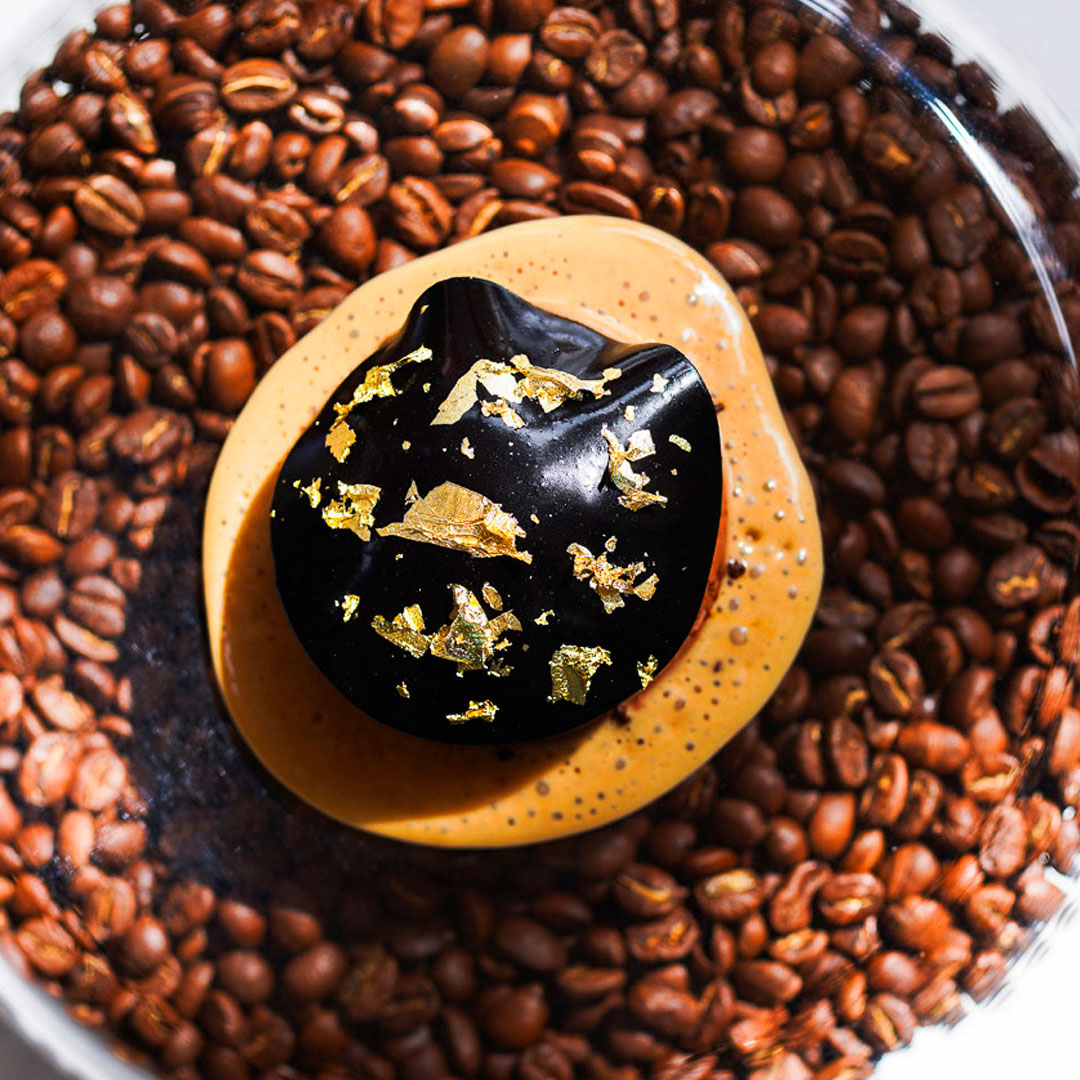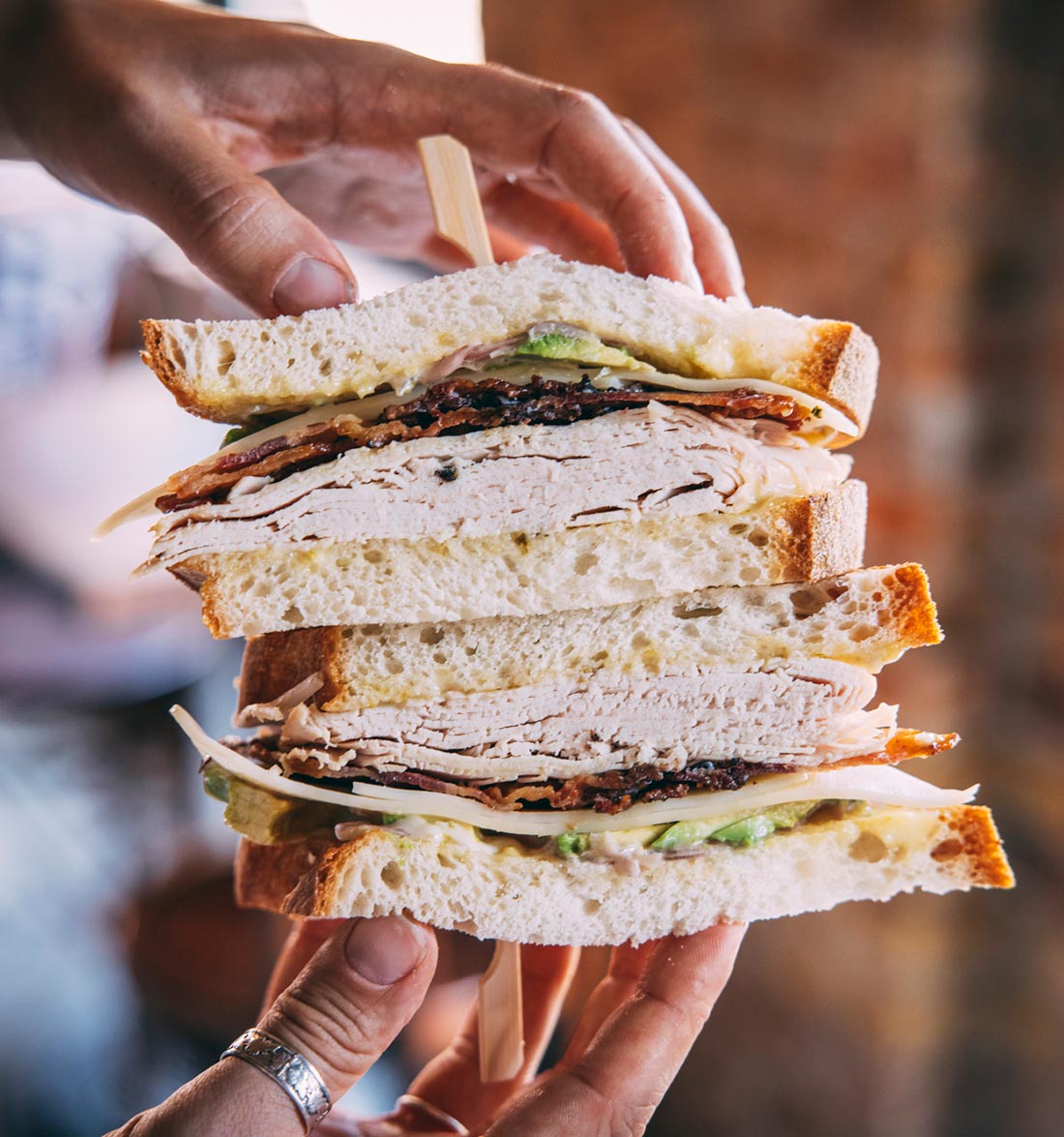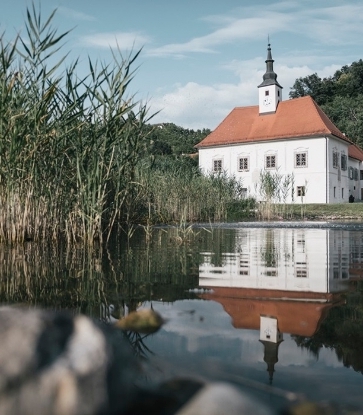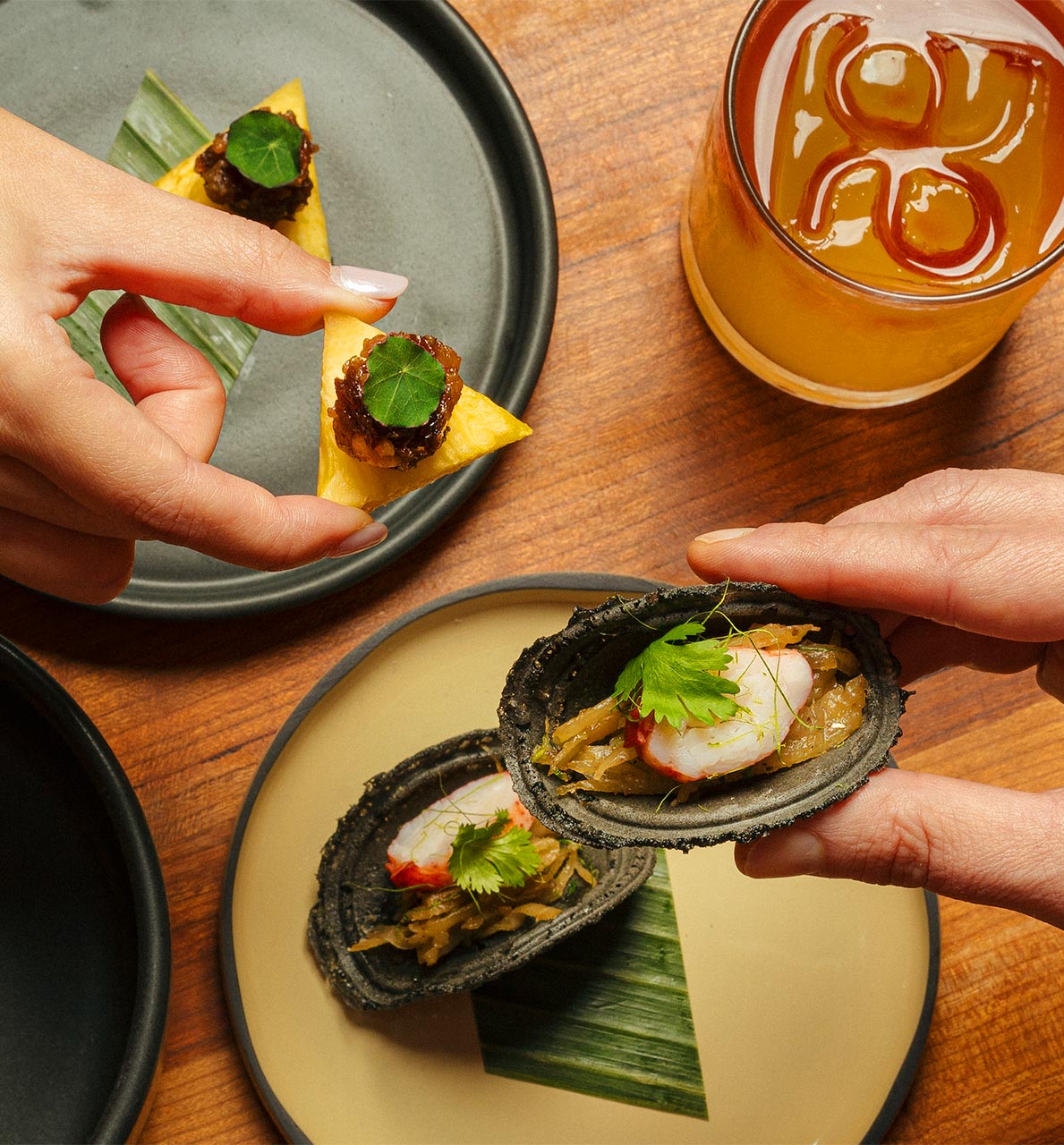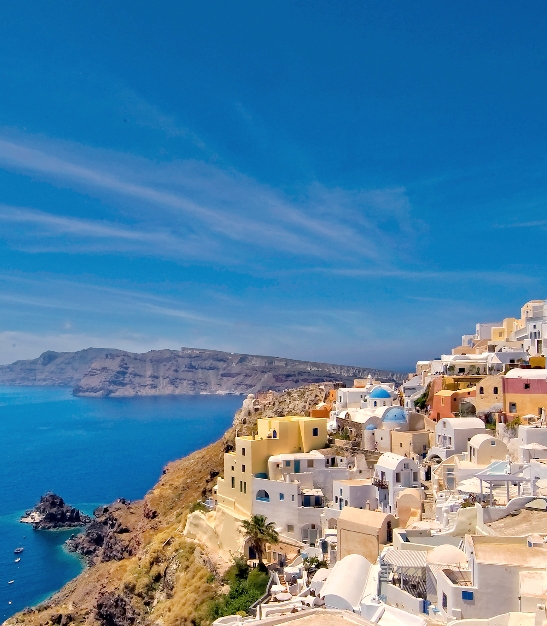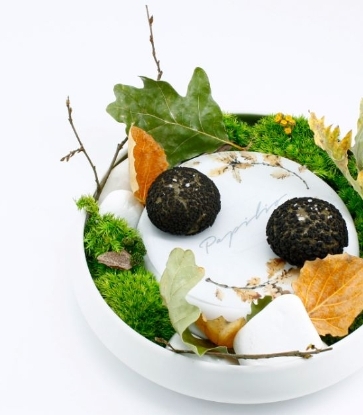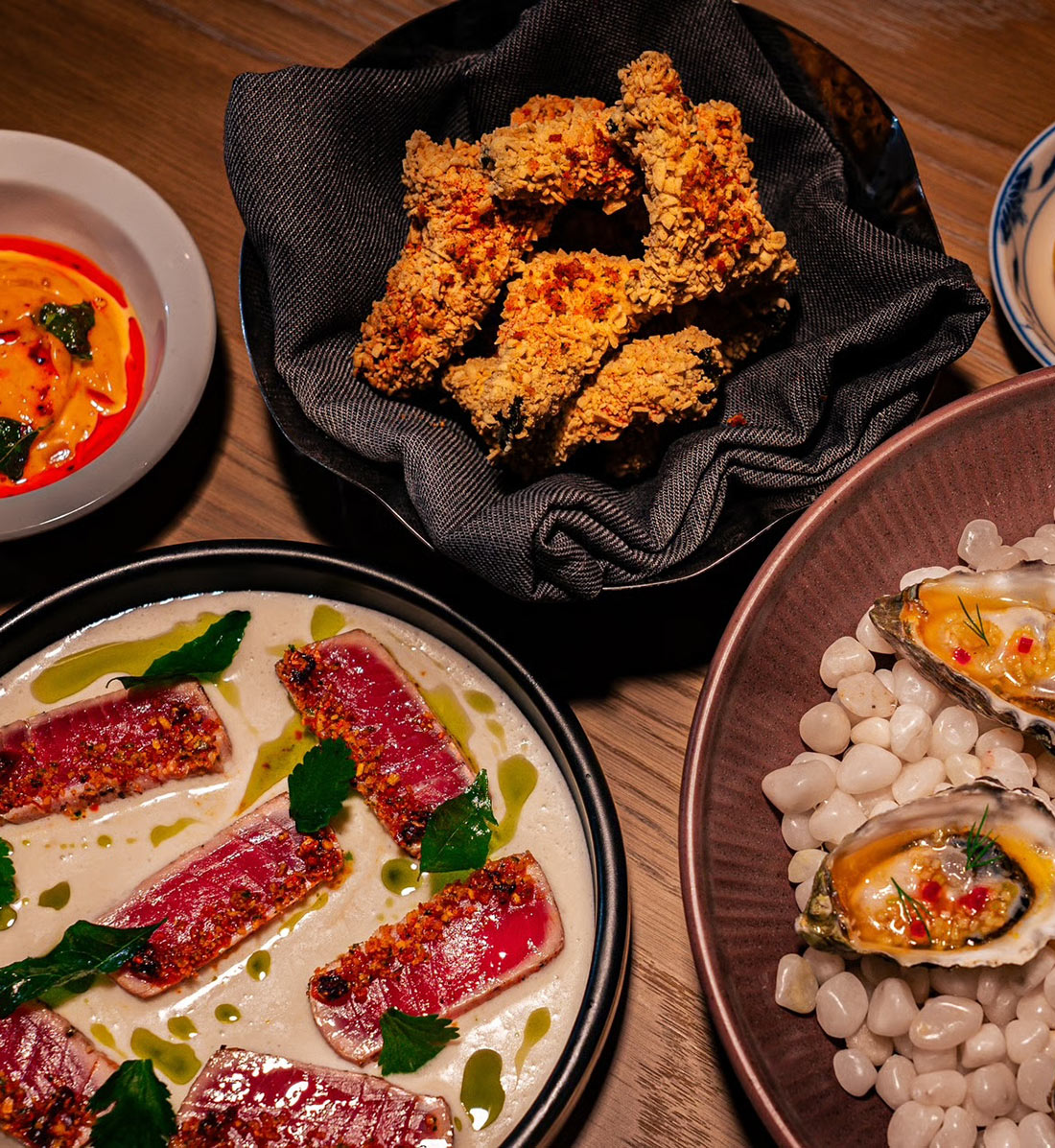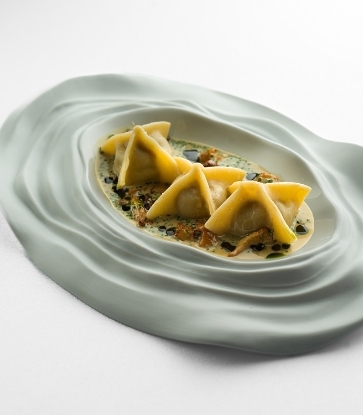At the first MICHELIN Guide Ceremony for Hungary, the inspectors were pleased to award four restaurants with a Michelin Green Star for their sustainable credentials. Each one of these establishments can be considered a role model when it comes to the initiatives that they are undertaking in an effort to reduce waste and protect the environment. All while serving delicious food, of course.
Almalomb, Hosszúhetény

Honesty and authenticity underpin the Almalomb ethos. Their belief in serving good, local food runs through all who work here and starts with Rita Ásványi – the heir to this former 19C water mill. The Almalomb food is “as it should be” she says, which means having minimal impact on the environment. And when you visit this charming restaurant in the peaceful village of Hosszúhetény, you will find a palpable pride in the staff, who have all bought into the business’ sustainable ethos.
So many of their working practices at Almalomb are engineered to respect and protect the natural world, but the food itself is perhaps the greatest example of this. Menus are kept deliberately short and seasonal to reduce food waste, with any leftovers being composted. Said compost is then used in their own fruit and vegetable garden, which provides much of the food that ends up on your plate.

Other produce is sourced locally too, ensuring that transportation is kept to a minimum and that the Almalomb menu has as small a carbon footprint as possible. If you wish to stick to the home-grown veg and go meat-free, then a vegetarian menu is always available too. When your dishes arrive, expect much of it to be not just home-grown but homemade. The kitchen team make their own bread and pasta, as well as reviving traditional recipes and techniques like smoking, fermentation and pickling. This all results in less waste, less emissions and some delicious food.
Beyond the menu, the team try to extend their sustainable approach as far as possible. Their hot water demand is fulfilled by solar power, whilst the building is heated using a variety of sustainable methods including a heat pump, a pellet stove and heat recovery ventilation technology. Efficient lighting further helps to reduce energy consumption.
Disposable plastics are, of course, nowhere to be found – and even Almalomb’s cleaning detergents and toiletries are environmentally friendly. A refreshingly thoughtful approach is taken to water too, with it being treated as a scarce resource and used accordingly; some of their water needs are even fulfilled by their own well. This is just another example of where the Almalomb team have pushed themselves that little bit further to help protect the natural world around them.
Graefl Major Kétútköz, Poroszló

At Graefl Major Kétútköz, they take the term ‘grow your own’ to a whole new level. Every part of your meal is produced on their vast 25 acre estate, with organic, self-sustaining farming the driving force behind their approach to food. The cooking has seasonality at its core, so if something is ready to harvest, then it will be used. The chefs keep their menu concise to allow for this constant flexibility, while also ensuring that any food waste is minimised.
Alongside a considerable fruit and vegetable garden, the team at Graefl Major Kétútköz produce a staggering array of ingredients that offer enormous culinary potential to their chefs, with greenhouses used to produce salad leaves all year round. It’s no wonder that three full-time gardeners are employed to keep the place running.
Meat and game come from the estate, with the animals reared on-site and often fed by food scraps from the kitchen. Really making the most of what these animals can offer, cheeses and other dairy products are made by the team themselves – and the manure is also utilised, pushing the sustainable farming approach even further.
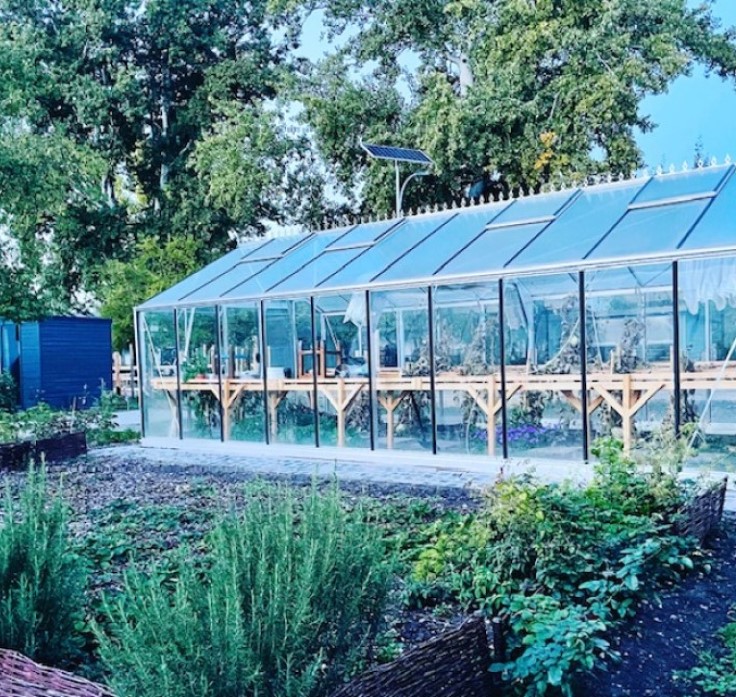
The sheer scale of their commitment to organic farming here at Graefl Major Kétútköz really is commendable, but perhaps what is most eye-catching about their work is the less obvious touches that show how far they have pushed their ethos. Not only do they grow their own wheat, but they mill it themselves too. It’s then turned into stunning sourdough bread baked in a wood-burning oven – and that wood, you’ve guessed it, comes from the estate. The remainder of the wheat is then used for their home-brewed beer. Going back to the most basic of things, even their water is sourced sustainably, from a 300 metre well on-site.
When it comes to the home-grown fruit, it’s not just eaten, but turned into fruit syrups and pálinkas too. And when winter comes, nothing needs to be outsourced, because they already dried and cured produce themselves back in the summer.
As chef Ádám Gyüjtő says, “Sustainability permeates every aspect of Graefl”, and the team are fully committed to their organic farming and sustainable practices. Before dining, guests are invited to visit the grounds and experience the farming process, to help appreciate the work that goes into their food. Housed in a gorgeously restored art nouveau mansion, this restaurant is a peaceful slice of a sustainable paradise.
Onyx Műhely, Budapest

The city of Budapest is integral to the food served at Onyx Műhely. The original Onyx, one of the city’s most revered restaurants, is set to reopen in 2024 and its revamped menu will serve dishes currently being refined at this 16-seater test kitchen. Their latest menu is a tribute to Hungary’s capital, taking the form of a trip along the metro. As such, all ingredients come from the city, demonstrating a serious, sustainable approach from a kitchen that once imported many of its ingredients from France.
Not only are the team taking a new approach of putting Hungarian ingredients first, but every aspect of their business at Onyx Műhely is being analysed through a sustainable lens via their Sustainability Manager, who helps shape their ongoing process of making the restaurant more and more environmentally friendly. This process is split into seven key areas.

The first of these is, unsurprisingly, the food – namely, what it is and where it comes from. Much of their produce is organic and the menus have a strong focus on seasonality. They have also announced an ambition for the Onyx brand to become entirely self-sustainable in the future and have taken a step towards this in setting up their own free range chicken farm; a plot of land to grow fruit and vegetables is on the horizon too.
Second on Onyx Műhely’s list of target areas is their equipment and accessories. In other words, they’re building sustainability into the very fabric of the restaurant. All furniture in the dining room is made by Hungarian designers, using Hungarian materials and eco-friendly methods. Even the workwear of the furniture makers is fashioned from recycled materials.
Along with their new focus on local food and materials, reducing waste is another key element underpinning the Onyx approach. They have invested in the Japanese liquid freezing technology Tomin, which is helping them to almost completely eradicate food waste. Beyond food, plastic is avoided wherever possible and everything else is judiciously recycled.
The remaining areas where the team have focused their attentions include targeting energy efficiency throughout the premises; only using environmentally friendly detergents; and regularly calculating their carbon footprint to ensure they are continually improving. The latter is befitting of a restaurant that has changed many of its practices for the better in the face of climate change. Finally, they put the focus back on the guest, communicating the importance of sustainable cooking and even offering the chance to offset the carbon produced in creating your meal.

As the only restaurant in Hungary with both a Michelin Star and a Michelin Green Star, Salt is leading the way for high-end sustainable gastronomy. With a heavy focus on local and seasonal food, combined with a low-waste ethos that sees them think of new and creative ways to make the most of their ingredients, the team at Salt are making great strides in reducing their impact on the natural world.
Enter into the chic dining room at Salt and you’ll see wooden shelves bedecked with all manner of colourful jars. They’re an indicator of one of the kitchen’s favourite activities: fermentation. It forms a core part of their sustainable effort, with the likes of pickled wild apples and fermented pine needle being used in the dishes. They believe that using these traditional techniques helps to reduce energy consumption, as well as being a great way to utilise ingredients that would otherwise be thrown away.
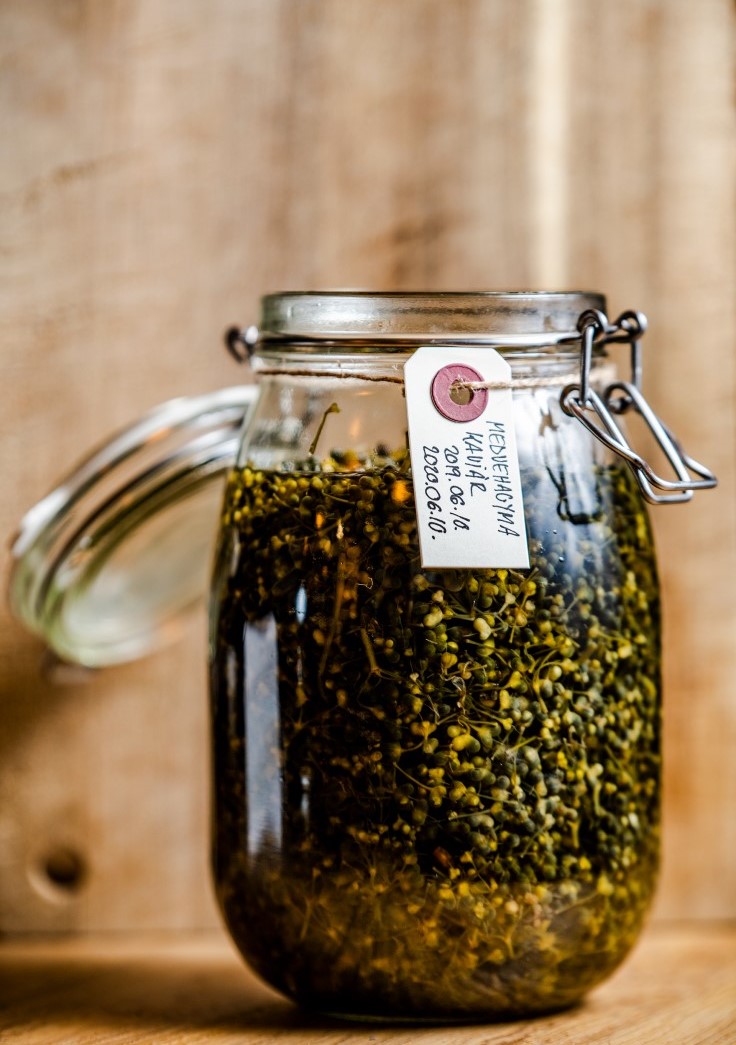
The herbs, fruits and vegetables used in the preserving process are often foraged locally too, indicating Salt’s wider commitment to local and organic produce. There certainly is a real farm-to-table approach here, with chef-owner Szilárd Tóth using Mangalitsa ham and poultry from his own family businesses, thus reducing the number of parties involved and keeping ingredients as pure as possible.
Once the meat and other animal products arrive in the restaurant, they are treated with a top-to-tail ethos designed to produce minimal waste. For instance, you may find fish skin in your amuse bouche, before the fish itself features later on in your meal. Beyond conventional meat and fish options, Szilárd and his team also use alternative protein sources that are less damaging to the environment – such as ants and snails – as well as offering vegetarian and vegan versions of their tasting menu on request.
Your dishes at Salt, whatever you choose, will likely contain several elements produced in-house. Alongside the foraged and fermented products, the team make their own lardo, vinegars, butter and bread. And all of the non-alcoholic drinks, including their juice pairings, are made in-house too. Any outsourced ingredients are seasonal and almost entirely Hungarian, and the plates themselves come from Hungarian ceramicist Néma Júlia.
Numerous smaller initiatives help to make up the whole sustainable picture. Eco-friendly cleaning products are used; the menu is planned in advance to avoid unnecessary waste; and the team’s clothing comes from sustainable European sources. All these efforts come together to create a restaurant with its mind firmly on a greener future. By their own admission, there is always something more that can be done or that can be done better, and they are constantly striving to improve what they do.
Hero photo: Salt (by Dávid Horpáczi)



